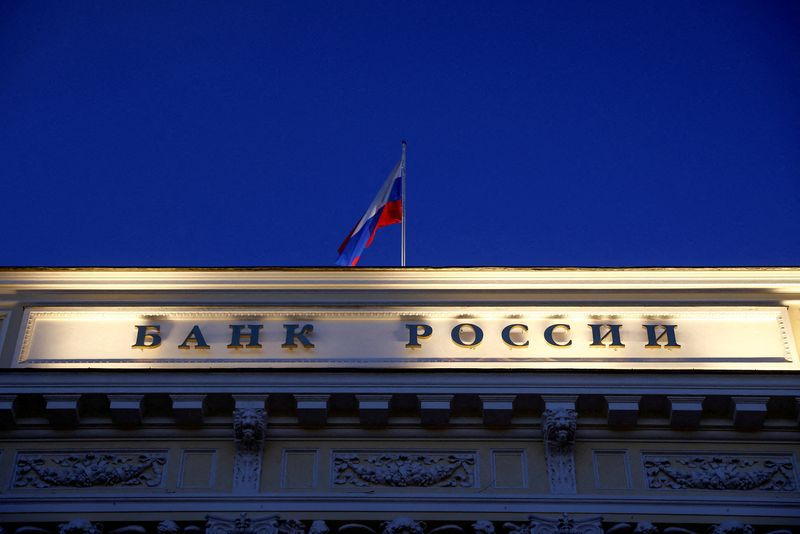(Bloomberg) -- Russia’s central bank brought interest rates below their level before the invasion of Ukraine, easing monetary policy more than forecast as it navigates risks to inflation and the economy from sanctions.
Policy makers lowered their benchmark to 8% from 9.5% on Friday. The fifth straight cut was bigger than predicted by any of the economists surveyed by Bloomberg. Governor Elvira Nabiullina will hold a news conference at 3 p.m. in Moscow.
The easing cycle that started in April has taken advantage of a slowdown in inflation after rapid gains in the ruble and a steep cooling of the economy. Although central bankers from Europe to South Africa are unleashing the most aggressive tightening of monetary policy in decades, Russia’s isolation from global markets makes it more immune to the narrowing in the rate differential.
The economy appears on track for a much shallower recession than first feared, boosted by fiscal stimulus and rising oil production that has blunted the impact of US and European sanctions over the Kremlin’s war in Ukraine.
A pickup in lending in recent weeks is among signs that Russia is turning a corner following a crash in consumer spending. A massive rally in the ruble has meanwhile sputtered, with the Russian currency only about 2% stronger since the central bank last cut rates in June.
Driven by the sanctions imposed by the US and its allies, imports into Russia have all but collapsed, contributing to a record surplus in the current account. With trade imbalances growing worse, lower interest rates may bring some relief for consumers and help revive domestic demand.
What Bloomberg Economics Says:
“Lowering interest rates is an attempt to narrow the current account surplus, which totaled a record $139 billion in the first six months of the year. The surplus is undesirable for Russia, as it mostly results in larger cash holdings at foreign banks, which are exposed to potential sanctions. Easier monetary policy aims to spur import demand to narrow the surplus.”
--Alex Isakov, Russia Economist.
Nabiullina has previously signaled that further easing would be more gradual and depend more on how inflation fares while the economy adapts to sanctions. Officials in Moscow, some of whom saw a contraction of as much as 12% this year, are now preparing to improve forecasts to less than half that.
Annual price growth eased to 15.4% as of July 15, down from nearly 18% in April. Inflation expectations for a year ahead have also declined to levels last seen in March 2021.
